Welcome to our comprehensive guide on premium granular organic fertilizer. In this blog, we will explore the numerous benefits of using organic fertilizer to enhance the health and yield of your plants. We’ll discuss the science behind organic fertilization, compare it with synthetic alternatives, and provide practical tips for application in various gardening scenarios. Whether you’re a seasoned gardener or a novice looking to improve your green thumb, this article aims to provide valuable insights and actionable advice to help you achieve lush, productive gardens and bountiful harvests. Stay tuned as we dive into the world of organic fertilizers and discover how they can transform your gardening experience.
What is Granular Organic Fertilizer?
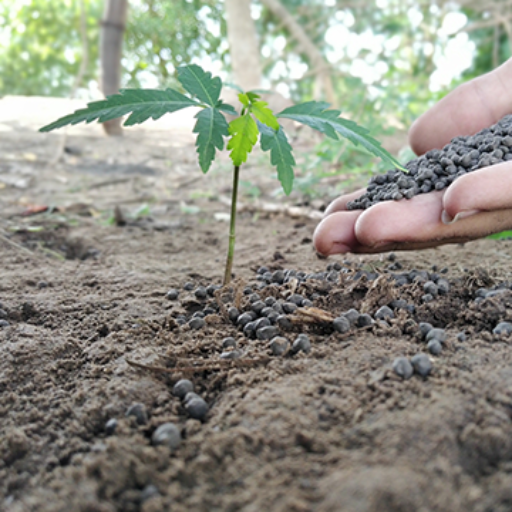
How does granular fertilizer differ from other types of fertilizers?
In what ways is granular organic fertilizer different from other kinds of fertilizers? Primarily, the differences between the forms and methods of their application set them apart. Tiny solid particles are what make up granular fertilizers which are released on soil surface and slowly decompose with time. Its slow release to unprecedentedly long periods guarantees continuous nutrients supply hence reducing the frequency of reapplication. Conversely, liquid fertilizers are quickly absorbed and thus have to be used more frequently while powder ones need dissolving in water before use. Other than that, handling and storing these types of fertilizer is easy thus making it convenient for gardeners as compared to others. Moreover, they enhance soil structure by adding organic matter unlike synthetic alternatives that can only provide instant nutrient increments but not improve soil health in the future.
The main components of organic granular fertilizers
Which ingredients constitute organic granular fertilizers? There are several key components that make these bio-fertilizer effective in enriching soils for plant growth.
- Plant-based materials: Such bio-waste as composted leaves, soybean meal, cottonseed meal, alfalfa meal etc., also contain primary nutrients such as nitrogen (N), phosphorus (P) and potassium (K) in a form ready for slow release into plants systems. These elements are vital for general crop growth.
- Animal by-products: Bone meal, blood meals and fish emulsion are important sources of significant Nutrients. For example bone meal has high phosphorous content similarly like blood meal is rich source of nitrogen while fish emulsion has both trace minerals and nitrogen together.
- Minerals: Rocks phosphate, greensand, gypsum among others often seek to provide additional nutrients besides enhancing soil structure respectively. Phosphate forms rocks serves better as a major type of phosphorous material; potassium ions including numerous other trace elements found in greensand; calcium obtained from gypsum leading to improved soil aeration.
These work together to ensure the fertility of the soil is enhanced through provision of balanced nutrients, improved soil structure and promoting beneficial microbial action. Hence each contributes to long-term health and productivity in gardens making organic granular fertilizers an excellent choice for sustainability in gardening.
Why choose organic fertilizer over synthetic options?
What are some of advantages for going for organic fertilizer compared to chemical ones? Organic fertilizers release nutrients slowly which helps provide regular supplies of essential elements that plants require; thus, preventing nutrient runoff and leaching. This slow release also creates favorable conditions for useful microbial and fungal activities within the soil thereby promoting its fertility and structure over time. On the other hand, non-synthetic options are usually devoid of poisonous substances that can damage environment. Also, most organic fertilizers utilize renewable resources plus by-products hence they have greater sustainability than others do. It is natural manure that improves ground condition while it maintains balance in nature so far as sustainable horticulture as well as agriculture is concerned.
How to Apply Granular Organic Fertilizer Correctly?
Steps to be undertaken in your garden
For correct application of granular organic fertilizer in your garden, please observe the following steps:
- Prepare the soil: To prepare the garden for fertilizing, one has to remove all weeds and stones that might be there on it. Soil loosening with a fork or tiller ensures that the fertilizer will sink and mix well.
- Determine application rate: The manufacturer’s equation is used to calculate how much granular fertilizer needs to be applied in your specific plant and garden size. These quantities are usually specified on the package.
- Spread the Fertilizer: Spread evenly in beds using granulated fertilizers. For larger areas you can use a broadcast spreader for even distribution while for smaller or restricted areas like gardens a hand spreader or simply scattering by hand works best.
- Mix into soil:After applying this is followed by lightly raking or mixing it into top few inches of soil (ensure nutrients are readily available for plant roots) as it helps prevent any runoff of these nutrients out of the soil.
- Water Thoroughly: After applying, water your garden effectively so that nutrient activation process may begin taking place within them before they start working within future tilled soils.
- Regular Monitoring: Observe your plants regularly to assess their growth and health. Reapply when necessary usually after every 4-6 weeks depending on what you are growing.
By following these steps, you can efficiently and effectively provide your garden with the necessary nutrients for healthy and vibrant plant growth.
Best practices for lawn care with organic fertilizers
Organic fertilizers enable lawn maintenance which is sustainable and environment friendly, resulting in strong soils and resilient grasses. What follows are guidelines on how to achieve optimal results regarding lawn care:
- Soil Testing: A soil test should be done first before adding anything because it tells us exactly what kind of fertility state our land possesses including its pH levels. It helps one determine type of organic fertilizer and quantity they should apply.
- Choose the Right Fertilizer: Choose an organic fertilizer that is suitable for your lawn such as compost, manure, bone meal or fish emulsion. You should look for those products which contain these rich nutrients like nitrogen (N), phosphorus (P) and potassium (K).
- Proper Application Timing: Apply organic fertilizers during the growing season, typically in spring and early fall. Avoid putting it on at times of extreme heat or when there is no rain so that it does not burn grasses over time.
- Correct Application Method: Use a broadcast spreader for even distribution of granular fertilizers. For liquid fertilizers, you can use a hose-end sprayer to achieve uniform coverage. Adhere to the recommended applications rates from the manufacturers’ instructions.
- Watering:Water your lawn deeply after applying organic fertilizer. This helps the nutrients to be absorbed by soil making them available for plant roots. Especially during dry periods, consistent watering will greatly help.
- Regular Maintenance: Mow, aerate and overseed your lawn regularly on set dates. Well trimmed lawns also add to beauty of our homes apart from keeping this important place healthy.
By adhering to these best practices, you can achieve a lush, green lawn while also promoting soil fertility and reducing environmental impact.
What are the Benefits of Using Organic Granular Fertilizers?
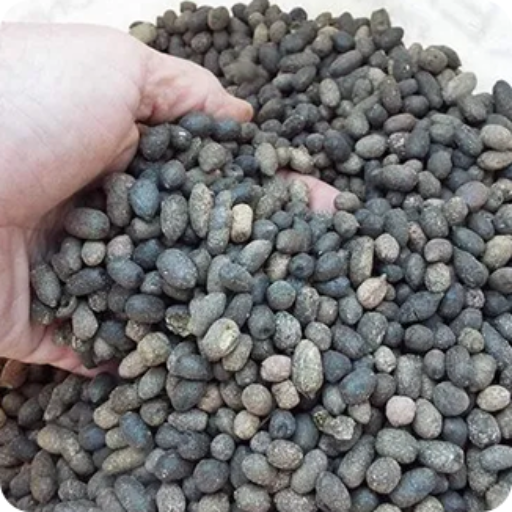
What does it do to soil quality?
Soil structure and aeration are improved by the organic matter content that results from organic granular fertilizers’ application for enhancing soil quality. This enables water retention and drainage to improve, thus creating a more conducive root environment for plants. As these fertilizer decomposes, they encourage microbial activity leading to a highly diverse and thriving community of microbes. By breaking down organic matter into nutrients, these beneficial microorganisms promote nutrient circulation in such a way that the nutrients become available to plants easily. In this perspective, one can say that by using organic granular fertilizers, farmers enhance soil fertility continuously and improve its healthiness on the long-term.
Influence on plant growth and health
Steady supply of nutrients through slow release is an important way through which organic granular fertilizers affect plant growth and health. This gradual release path ensures that plants receive nitrogen, phosphorus as well as potassium among other key elements consistently over time just like natural processes would have done it. Robust root development is enhanced alongside vibrant foliage as well as increased stress resistance. Moreover, limited nutrient leaching risk means less environmental runoff making them more eco-friendly alternative than synthetic ones. Organic fertilizers based on a holistic approach are hence used to ensure vigorous and healthy plant growth while retaining ecological perspectives.
Long-run impacts relative to soil’s organic matter
The application of organic granular fertilizers in the long run leads to a significant improvement of the level of organic matter in the soil.For instance; continual use of these types for several years has led to an increase in the levels of carbonaceous materials found in most soils meant for planting crops. Higher amounts of such compound also lead into better-aerated soil with high water-holding capacity which is good for maintaining healthy environment. Increased levels boost activities by microbes as well as diversity which are very essential practices in relation to recycling many different nutrients within the existing biosphere. Lastly, consistent utilization of organic granular fertilizers result into a better soil ecosystem that is resilient and favors strong plant development as well as supportable farming activities.
What Does Customer Reviews Say About Granular Organic Fertilizer?
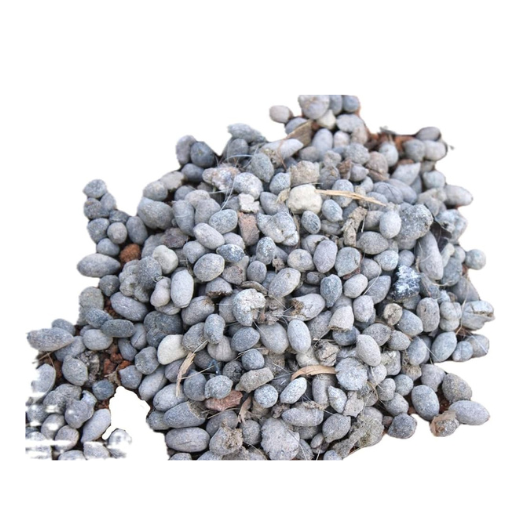
Most common benefits as seen by users
Granular organic fertilizers are often praised by different users for several advantages. Firstly, many appreciate the fact that they release nutrients slowly thereby ensuring consistent supply of nutrients to plants over time and encouraging healthy and vigorous growth. Secondly, customers frequently underline their environmental friendliness, which is attributed to decreased chemical runoff and a lower ecological footprint compared with synthetic alternatives. Lastly, many users have observed improved soil health such as better water retention, increased microbial activity and enhanced soil structure that enhance more productive and resilient garden ecosystems.
What do customer reviews say about applying granules?
Clients claim that it is easy to apply granulated fertilizer. According to top reviewers, many agree that these small globes can be spread uniformly across various types of soils resulting into uniformity in coverage. Users state that the required application rates given on the container yield maximum results and most love its slow-release effect so that one does not have to apply it often. Moreover, feedbacks often mention low chances of fertilizer burn in case of using granulated ones due which seems to be advantageous both for someone who takes up gardening for the first time and experienced gardeners as well. In general, purchasers find them very simple in their use and efficient considering their supportiveness towards healthy plant development.
Feedback from gardens’ long-term growth and improvement
Feedback on long-term garden growth with granular fertilizer is overwhelmingly positive. The continuous release of nutrients helps in maintaining plants throughout growing seasons according to farmers. As per top sources multiple applications of granular fertilizers lead to an appreciable increase in soil quality such as better aeration or greater nutrient availability. Some accounts also reveal stronger root systems which develop over time making plants more resistant towards pests and diseases while others add up cumulative advantages like subsequent years after regular usage feel much brighter than before thanks to annual installation of granulates within gardening areas among other things worth mentioning here too.Thus long-term results show healthier, more productive gardens with the application of granulate fertilizers on a regular basis.
How Does Granular Organic Fertilizer Support Plant Health?
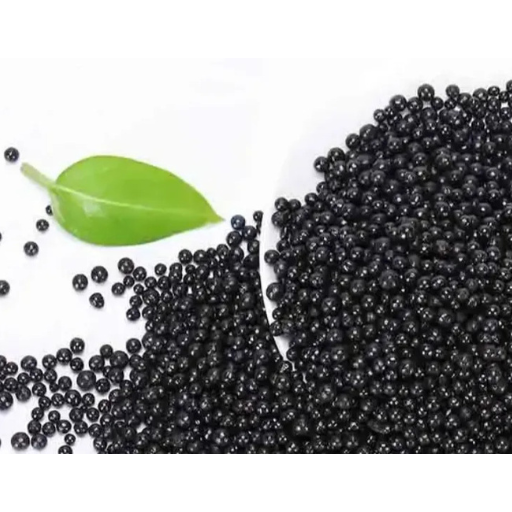
The significance of Nitrogen, Phosphorus and Potassium
To be an effective gardener, understanding the role of nitrogen (N), phosphorus (P) and potassium (K) in supporting plant health is important. Through my study, I have found out that nitrogen is very vital in increasing the size of leaves as well as stimulating overall plant vigor hence giving plants their vibrant green color. On the other hand phosphorous is important for root growth and flowering to ensure strong foundations and the ability to produce flowers and fruits respectively. While this happened potassium helps in controlling water in plants and resistance against diseases therefore conferring to them a higher degree of environmental adaptability. From my observation applying these granular organic fertilizers rich with these essential nutrients has improved my plant’s health, making it grow better.
Effect on Flowers and Vegetable Crops
My experience and research have shown me that using granular organic fertilizers has made a big difference for both my flowers and vegetable crops. For instance, they help flowers bloom larger, brighter colored flowers that last longer than usual. This may be due to properly balanced nutrients throughout flower development stages. The same effects are seen on vegetable crops too. I have noticed stronger plants with less nutrient deficiencies such as yellowing leaves or stunted growth. Consistent nutrient supply including phosphorus for root development can result to high yields as well as good taste of farm produce.A summary point would be that granular organic fertilizers give a continuous release of nutrients which contributes significantly towards maintaining good health status as well as productivity levels within my garden.
Improvement of Root Structure And General Plant Health
To improve root system structures along with general plant wellness, it was discovered through this research work that employing slow-release granular organic fertilizers plays a key role in enhancing root structure while promoting overall plant health.Hereby ensuring balance nutrients necessary for every stage of flower growth process.These changes will also become evident in the case of seasonal vegetables too. In them, there have been healthy growths observed with few signs of nutrient deficiency such as yellowing or stunted leaves. This is due to the consistent nutrient supply mainly phosphorus that aids in the development of roots and fruits leading to high yields and tastier fruits. All in all, granular organic fertilizers added improve the garden more.
Frequently Asked Questions (FAQs)
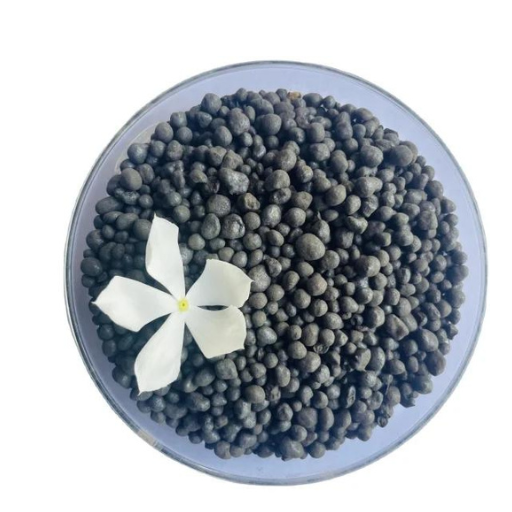
Q: What are the main advantages of using Premium Granular Organic Fertilizer?
A: Among the primary benefits are improved fertility of soil, healthier plants and good harvests. This multi-purpose plant food is loaded with essential growth and health elements.
Q: How often should I apply the Premium Granular Organic Fertilizer to my plants?
A: For optimum performance, the fertilizer needs to be applied every 6-8 weeks. This fertilizer has a controlled release mechanism such that nutrients are made available for your plants over a long period.
Q: Is this fertilizer suitable for use on grass and lawns?
A: It is indeed an excellent organic lawn feed which improves growth as well as grass health. Being an all-around formula it can be used on various kinds of plants such as turfs.
Q: What sizes does the Premium Granular Organic Fertilizer bag come in?
A: There are different pack sizes for the manure depending on what one wants; these usually range from small 5lb sacks to larger 50lb bags used mainly by serious gardeners.
Q: Is this product OMRI listed?
A: Yes, our Premium Granular Organic Fertilizer is OMRI listed thus meeting strict organic gardening regulations.
Q: What ingredients are contained in the fertilizer?
A: The major constituent of this manure is poultry droppings which supply natural mineral nutrients to soils. Additionally, other bio-based components have been added into it so that a balance nutrition between elements could be attained.






